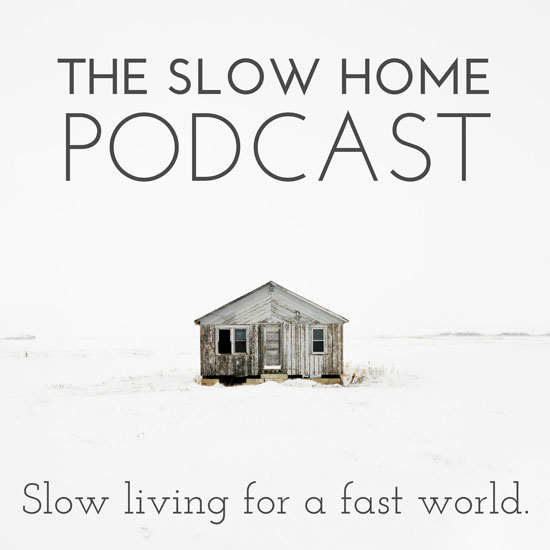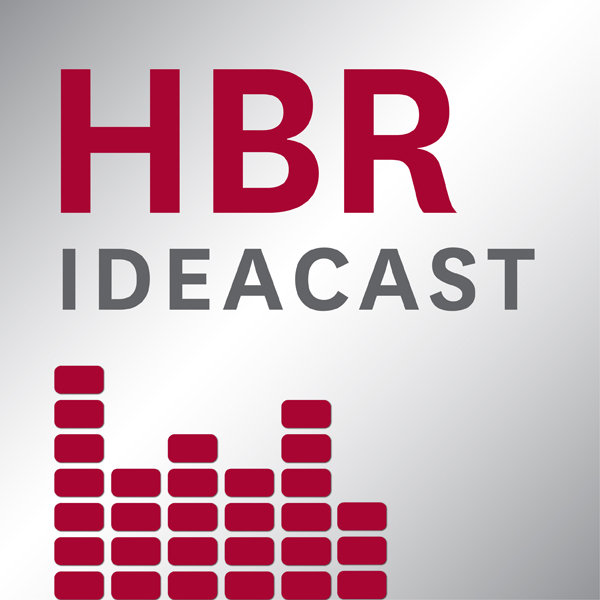This year I have started listening to lots of podcasts and audiobooks. There is just so much amazing content out there you can listen to. Today I am sharing 5 podcasts I listen to regularly and a must listen episode for each.
I am always on the look out for new suggestions so feel free to link me up to any you recommend in the comments below.

The Slow Your Home podcast is one of my absolute favourites at the moment. It is the creation of a smart Australian blogger Brooke McAlary. Brooke is now giving blogging a break at the moment to focus all her attention to the podcast. A move which fits completely with her philosophy of slowing down.
The must listen episode for me is an interview Brooke has with another Australian blogger Kelly Exeter. These women both share how it took episodes of anxiety or depression to make them finally slow down. Brook in this interview as she does in others, shows that slowing down, doesn’t mean you don’t have a full life. Kelly and Brooke have a great discussion on whether it’s possible for a family with both parents working full time to achieve a slower, simpler way of life.
You can listen to it by clicking here.

The TED Radio Hour podcast are a constant companion with me around the house when I am doing housework. They are incredibly well produced, always make me think and venture onto topics that I think sometimes I won’t really enjoy, but I end up doing so.
Each episode is based on talks given by amazing speakers from the TED stage. Each episode has a common theme and it uses snippets from the talks as well as interviews with the speakers about the topics of their talks. As they are purposely created for podcasts, you don’t have to watch the screen like a TED talk to get the full impact of the talks.
It was super hard to decide on one must listen episode, but I have chosen one that relates closely to my goal for this year. It is all about success and what makes us successful. All five of the speakers provide stimulating insights on what is success, but I really loved these thoughts from Alain de Botton who spoke on “What’s A Kinder Way To Frame Success?”:
Nowadays our identities are entirely bound up with our work. You can’t really understand someone without understanding what their job is. Which is all well and good except that many of us are not in the jobs we really want to be in. Some of us don’t even know what the right job would be, others know what the right job would be but we can’t get it. In other words there is a real danger of a disconnect between what’s on your business card and who you are deep inside and it is not a disconnect the world is ready to be patient with.
All success involves choices. Succeeding in one area will probably mean neglecting other areas.
You can listen to the show by clicking here.

I am a late comer to the Tim Ferris Podcast and while I don’t listen to every episode, he has some amazing guests on his show.
My must listen episode is a recent one and it is an interview Tim does with Brené Brown. I have just been getting into her books, so it was timely for me. Dr. Brené Brown is a research professor at the University of Houston Graduate College of Social Work. Brené’s 2010 TEDx Houston talk, The Power of Vulnerability, has been viewed more than 20 million times and is one of the top five most viewed TED talks in the world. She has spent the past 13 years studying vulnerability, courage, worthiness, and shame.
In the interview they talk about many things, but of course vulnerability is dominant. At around the one hour mark they talk about how does vulnerability coexist with masculine virtues and traits. This is particularly of interest to me as a mother of four boys.
You can listen to the show by clicking here.

Ben Greenfield Fitness podcasts is not your typical fitness podcast. As described on the site:
You’ll learn about fat burning efficiency zones, gut health, mental performance, maximizing recovery, boosting libido, and enhancing every possible aspect of you body – rather than just work out like a madman and eating boring food.
In other words, Ben will teach you how to become Superhuman as fast as possible, as safely as possible.
I love listening to the podcast, it challenges many ideas or beliefs I have on these types of issues and I like the casual approach he takes to the podcast.
My must listen episode is a very new one and on a topic which I really love Women’s Weightlifting 101, How To Avoid Getting Too Bulky, Hormone Imbalances In Fit Females & More. Steph who is a weightlifter discusses with Ben at around the 45 minute mark the issue of natural fat gain with age and about how women can exercise too much and it can make weight loss difficult.
You can listen to the show by clicking here.

This is the most “businessy” podcast on the list, but the podcast regularly discusses contemporary issues that are of interest whether or not you are in business.
My must listen episode is called Why We Pretend to Be Workaholics. It is so fascinating and also disheartening. Erin Reid from Boston University conducted a field study of a consulting firm that had the following culture:
At this firm, people believed that success indeed required ideal-worker-like devotion. Many reported 60- to 80-hour weeks, with little control over when those hours were worked and whether they might have to travel. Work was expected to come ahead of other life responsibilities. {source}
About 31% of men studied by Reid were “passing” in terms of seeming to work more hours than they were actually putting in and being the ideal worker, while only 11% of women were doing the same thing.
When Reid is asked why this is the case, she notes that she didn’t have a great sample, but this is what she thinks happens from the data she had:
People check up on women and they expect them not to work these long hours and they sort of police their time and there is a lot of research on what happens when women become mothers and people just start to sort of expect they are not going to work as hard and they’re not really as competent. Amy Cuttie’s work speaks to that.
My research revealed that men were just as likely as women to have trouble with these “always on” expectations. However, men often coped with these demands in ways that differed strikingly. Women who had trouble with the work hours tended to simply to take formal accommodations, reducing their work hours, but also revealing their inability to be true ideal workers, and they were consequently marginalized within the firm. In contrast, many men found unobtrusive, under-the-radar ways to alter the structure of their work (such as cultivating mostly local clients, or building alliances with other colleagues), such that they could work predictable schedules in the 50 to 60 hour range. In doing so, they were able to work far less than those who fully devoted themselves to work, and had greater control over when and where those hours were worked, yet were able to “pass” as ideal workers, evading penalties for their noncompliance. {source}
You can listen to the show by clicking here (episode 23).

